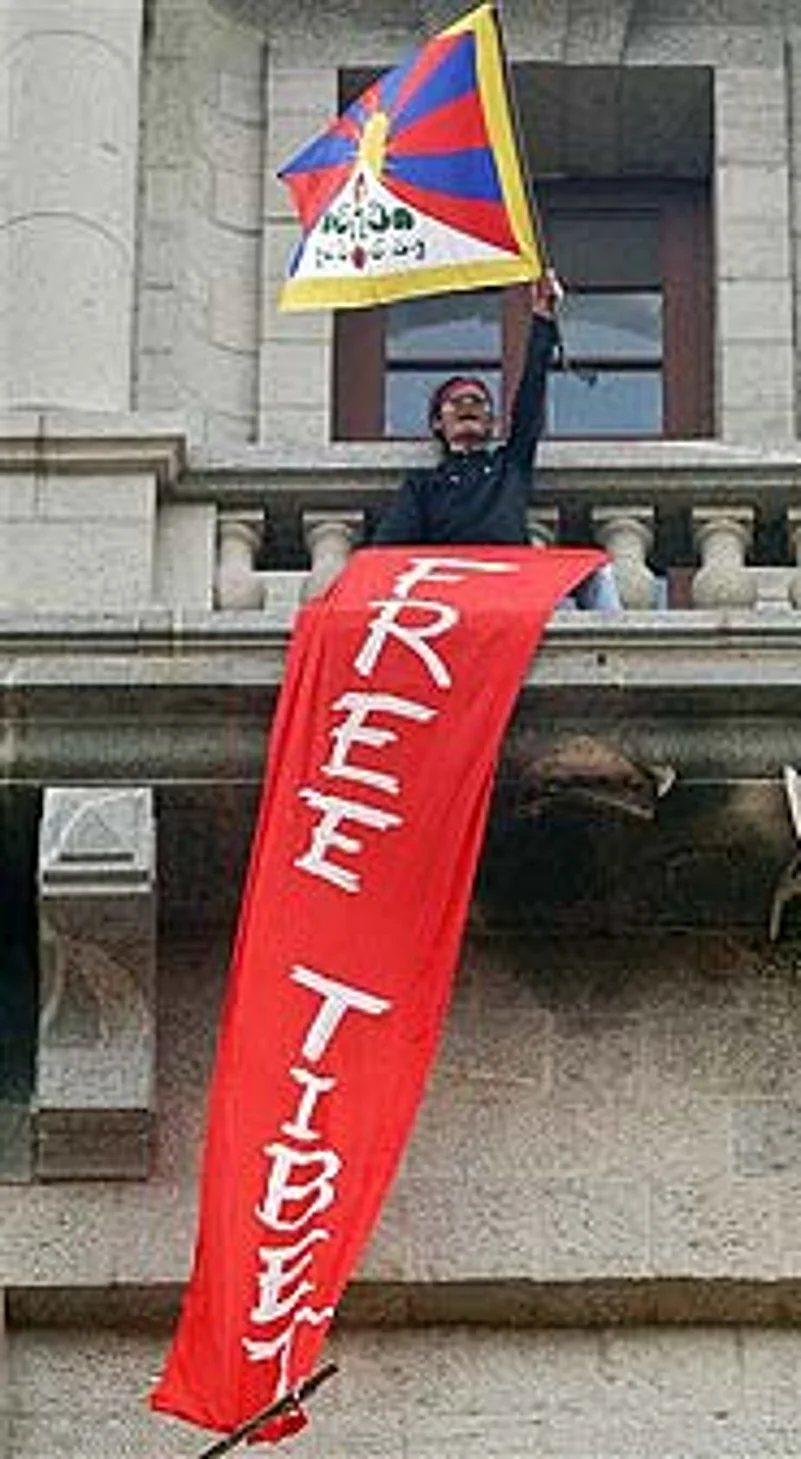Before it happened our local Superintendent of Police called me to his office twice and tried to advise me to keep silent. But when everything failed he slapped an official detention order on me saying I couldn't leave Dharamsala for 14 days. Hu Jintao, President of the People's Republic of China, was visiting India and the host government had to keep me away from their diplomatic display of friendship and desire for business contracts—fearing I might repeat my protest stunts by inviting myself to their banquet table shouting "FREE TIBET".

The order states that I was detained due to my protests in 2002 and 2005 -- when Chinese Prime Ministers Zhu Rongji and Wen Jiabao visited India -- and also on "substantial evidence" of plans to protest this time and add Hu Jintao to the list. For the 10 April 2005 caper, I hid myself on the balcony of the bell tower atop India's premier science institution for 24 hours. I had climbed the building the night before China's Prime Minister was to address a conference in the Indian Institute of Science. So, as Wen Jiabao started his speech on the ground floor, I emerged onto the tower's balcony brandishing the Tibetan national flag shouting "FREE TIBET". By then unfurling a huge red banner reading "FREE TIBET" and flinging leaflets in the air, the massive media coverage meant to focus on the Chinese premier was instantly redirected to Tibet.
India was therefore worried that the nation's security might be breached for the third time. So 15 policemen in plainclothes with four cars and two motorbikes were deployed to observe my activities. The police joined me everywhere—in the toilet, at meetings, to restaurants, and even watched me buy the morning's newspapers. At our police headquarters I had my mug shot taken twice to be circulated, along with the detention notice, to all police stations in Himachal Pradesh state, not to mention Agra, Delhi and Mumbai—the cities Hu was to visit. By then I was finding everything amusing since I live frugally and save rupees by always walking up and down the hill roads in this district of the lower Himalayas. And suddenly there are all these cops following me. My Tibetan friends started calling them my "bodyguard".
By then the news of my detention was spreading like wildfire across all the media. Letters of support were pouring in from all corners of the world. Young Tibetans were inspired and fired by the detention notice and so my friends were saying, "Let's all go to Delhi if Tsundue can't". Then six major Tibetan NGOs banded together and orchestrated the "Chalo Delhi" ["Let's go to Delhi"] Tibetan People's Movement to mobilize a huge gathering of Tibetans in Delhi to sit there in protest. Then, when this was posted on the internet, Tibetans and Tibet supporters the world over sent donations to ensure the success of this spontaneous movement.
This in turn inspired me. Creating a Tibetan Movement from within the Tibetan community has been an important focus. And when I saw the flowering of this momentum being created before my eyes I saw no reason to escape Dharamsala and go anywhere. So on the day when our people were being bussed down to Delhi, I met the chief of police again and requested smooth and safe passage for those demonstrators and a guarantee of police protection for our people who would sit in protest in Delhi.
Then I decided to stay. But I made it very clear to the police that the moment our peaceful public protest was disrupted by them, we would have to play the old cat-and-mouse game. The evening when almost a thousand emotionally-charged Tibetans gathered at McLeod Ganj square to board the buses for Delhi, I looked at the police surrounding us. No lathis. No side arms. The police hierarchy had kept their promise. But that night they stepped-up their vigilance on me to around 20 policemen and a fleet of cars and motorbikes choking the tiny, congested square.
The protest went smoothly with police protection; the police again kept their promise and even escorted the protestors to Delhi's protest site. India supported us when we lost Tibet to the Chinese invasion. After 47 years in exile, we are once again fighting China . India's newfound support has resuscitated our dreams of a free Tibet. On the other hand, India's policy that Tibet is a part of China - the policy inherited from the British Raj - has placed India herself in a dilemma today.
We Tibetans have no political strings to pull, no money, no power, we have no crude oil to offer in exchange for help; what we have is only history and truth. Our struggle is based on truth, and Nonviolence is our principle of life. For the truth we fight for we are willing to sacrifice everything—even our precious human lives.
Love and freedom


















